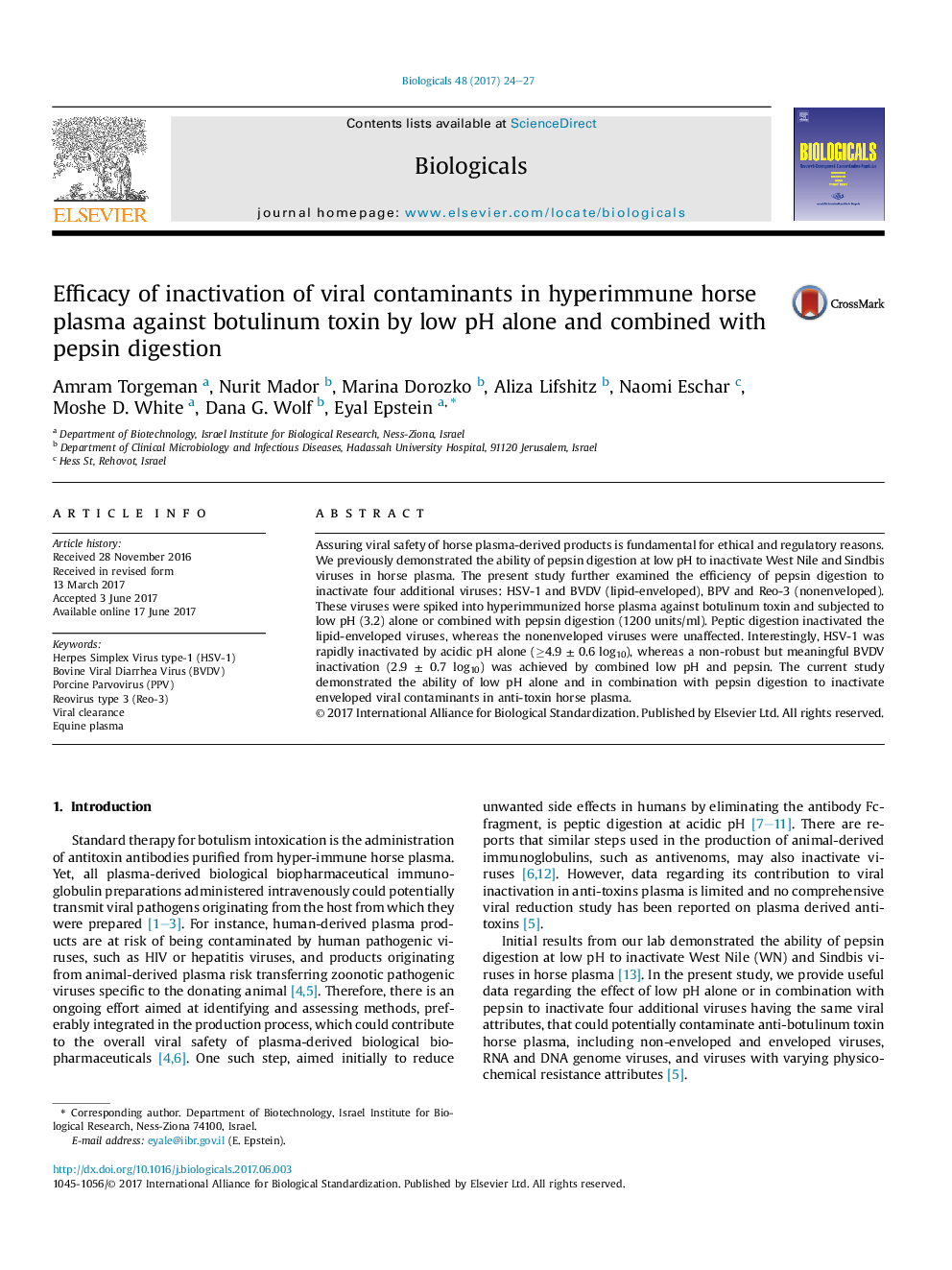| Article ID | Journal | Published Year | Pages | File Type |
|---|---|---|---|---|
| 5517064 | Biologicals | 2017 | 4 Pages |
Assuring viral safety of horse plasma-derived products is fundamental for ethical and regulatory reasons. We previously demonstrated the ability of pepsin digestion at low pH to inactivate West Nile and Sindbis viruses in horse plasma. The present study further examined the efficiency of pepsin digestion to inactivate four additional viruses: HSV-1 and BVDV (lipid-enveloped), BPV and Reo-3 (nonenveloped). These viruses were spiked into hyperimmunized horse plasma against botulinum toxin and subjected to low pH (3.2) alone or combined with pepsin digestion (1200 units/ml). Peptic digestion inactivated the lipid-enveloped viruses, whereas the nonenveloped viruses were unaffected. Interestingly, HSV-1 was rapidly inactivated by acidic pH alone (â¥4.9 ± 0.6 log10), whereas a non-robust but meaningful BVDV inactivation (2.9 ± 0.7 log10) was achieved by combined low pH and pepsin. The current study demonstrated the ability of low pH alone and in combination with pepsin digestion to inactivate enveloped viral contaminants in anti-toxin horse plasma.
